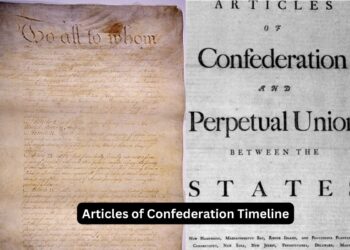A Formal Feeling Comes Essay by Jamie Hood
A Formal Feeling Comes Essay by Jamie Hood-In “A Formal Feeling Comes,” Jamie Hood undertakes a poignant exploration of grief and mourning, traversing the intricate emotional landscapes and societal expectations that accompany loss. Through a synthesis of personal introspection, literary examination, and philosophical inquiry, Hood delves into the complexities of grief with profound sensitivity. This essay summary aims to dissect Hood’s key themes, arguments, and insights in “A Formal Feeling Comes.”
Deconstructing the Title:
Hood initiates her discourse by unraveling the evocative title, drawing inspiration from Emily Dickinson’s poetry. “A Formal Feeling Comes” encapsulates the sense of structured ritual often associated with grief, hinting at the societal norms and expectations that shape the mourning process. Yet, Hood suggests that beneath this formal veneer lies a rich tapestry of raw emotion and complexity that defies easy categorization.
The Personal Landscape of Grief:
At the heart of Hood’s exploration lies her own personal journey through grief, as she grapples with the loss of loved ones. Through introspective prose and candid reflection, she unveils the multifaceted nature of mourning, emphasizing its deeply individualized and non-linear trajectory. Rejecting the notion of a universal approach to grief, Hood underscores the importance of honoring one’s unique emotional terrain.
Cultural and Societal Contexts:
Hood delves into the cultural and societal frameworks that inform our understanding and expression of grief. She interrogates the rituals, traditions, and societal expectations surrounding mourning, probing their efficacy in providing solace and support to the bereaved. Hood sheds light on the tension between private grief and public performance, highlighting the pressure to conform to societal norms amidst profound loss.
Also Read-
- I Wanted the Impossible by Heather Clark
- Spoken Like a True Poet Essay Stephen kearse
- Icon or Manhole Essay by Eric Sneathen
Literature as a Reflective Medium:
Throughout the essay, Hood employs literature as a reflective medium through which to explore grief. Analyzing works such as Joan Didion’s “The Year of Magical Thinking” and C.S. Lewis’s “A Grief Observed,” she elucidates how these authors articulate the rawness and complexity of mourning. Through literary analysis, Hood demonstrates how literature can serve as a mirror and guide for those navigating their own grief.
Embracing Ambiguity:
A central theme in “A Formal Feeling Comes” is the idea of embracing ambiguity in grief. Hood challenges the notion of closure and resolution, advocating instead for a willingness to sit with discomfort and uncertainty. She argues that by embracing the messy, unresolved nature of grief, individuals can find acceptance and meaning amidst loss.
A Formal Feeling Comes Themes
- Personalized Experience of Grief: Hood underscores the deeply personal nature of grief, highlighting the diverse ways in which individuals navigate and cope with loss. This theme emphasizes the importance of recognizing and respecting the unique grief journeys of each person, rejecting any attempts to homogenize or standardize the mourning experience.
- Social and Cultural Influences: Throughout the essay, Hood delves into the societal expectations and norms that surround grief and mourning. She critically examines the impact of cultural rituals, traditions, and societal pressures on individuals grieving the loss of a loved one. This theme invites readers to consider the interplay between private grief and public performance, challenging prevailing norms and encouraging empathy towards those grieving.
- Literature as Insight: Central to the exploration of grief is the use of literature as a medium for understanding and expression. Hood analyzes literary works such as Joan Didion’s “The Year of Magical Thinking” and C.S. Lewis’s “A Grief Observed,” exploring how these texts articulate the complexities of mourning. By engaging with literature, readers gain insight into the emotional depth and complexity of grief, finding resonance and solace in the shared human experience.
- Embracing Uncertainty: A recurring theme in the essay is the acceptance of ambiguity within the grieving process. Hood challenges the conventional notion of closure, advocating instead for an acknowledgment of the unresolved nature of grief. This theme encourages readers to embrace the discomfort and uncertainty inherent in mourning, recognizing it as a natural and necessary part of the healing journey.
- Empathy and Support: Hood underscores the importance of empathy, compassion, and communal support in navigating grief. This theme highlights the significance of bearing witness to the grief of others, offering understanding and solidarity in times of loss. By fostering empathetic connections, individuals can find comfort and strength amidst their own grief and provide meaningful support to others experiencing loss.
- Finding Meaning Amidst Loss: Despite the pain and sorrow of grief, Hood suggests the possibility of finding meaning and resilience in the face of loss. This theme encourages readers to seek solace in shared experiences, literature, and human connection, recognizing the transformative potential of grief. By embracing ambiguity and honoring their emotional journeys, individuals can discover moments of profound insight and acceptance amidst the challenges of mourning.
Conclusion:
In “A Formal Feeling Comes,” Jamie Hood offers a profound exploration of grief and mourning, weaving together personal reflection, cultural critique, and literary analysis to illuminate the complexities of the human experience in the face of loss. Through the essay, Hood challenges conventional notions of grief, inviting readers to embrace the ambiguity, individuality, and resilience inherent in the mourning process. By interrogating societal expectations, engaging with literature, and advocating for empathy and support, Hood provides a framework for navigating grief with compassion, understanding, and grace. Ultimately, “A Formal Feeling Comes” serves as a poignant reminder of the profound emotional terrain of grief and the transformative potential of embracing its complexities.
FAQ
1. What inspired Jamie Hood to write “A Formal Feeling Comes”?
Hood draws inspiration from personal experiences of loss, as well as from literary works and cultural observations that shed light on the multifaceted nature of grief.
2. How does Hood challenge societal expectations surrounding grief?
Hood interrogates rituals, traditions, and societal norms, encouraging readers to question the pressure to conform to predetermined narratives of mourning.
3. Why does Hood emphasize the importance of literature in understanding grief?
Literature provides a language and a lens through which individuals can articulate and explore the complexities of grief, finding solace and resonance in shared experiences.
4. What does Hood suggest about finding meaning in grief?
Despite the pain and sorrow of loss, Hood suggests that individuals can find meaning and resilience by embracing ambiguity, fostering empathetic connections, and engaging with the transformative potential of grief.
5. How does “A Formal Feeling Comes” encourage readers to support others experiencing grief?
The essay underscores the importance of empathy, compassion, and communal support in navigating grief, inviting readers to bear witness to the grief of others and offer meaningful solidarity and understanding.
















